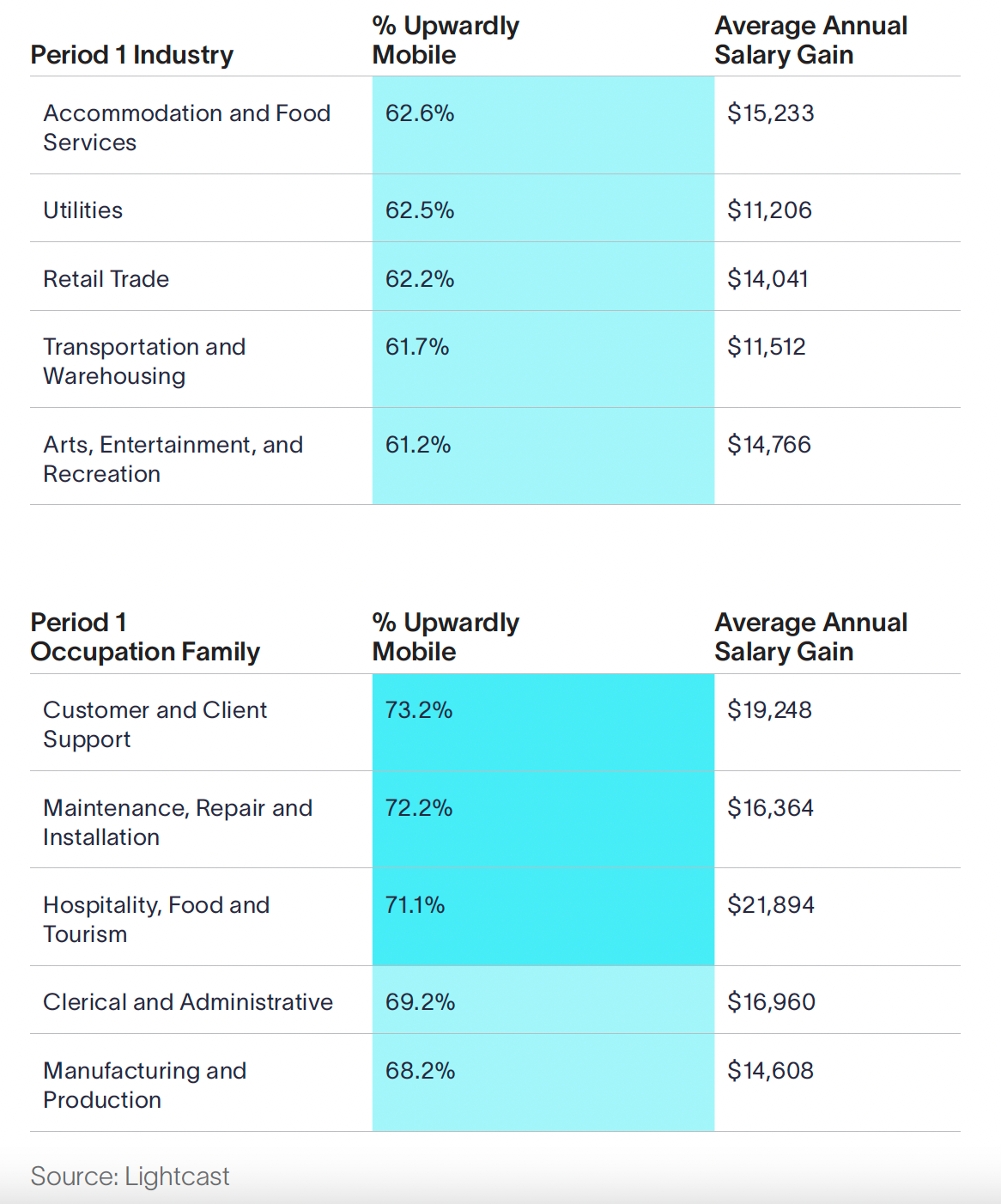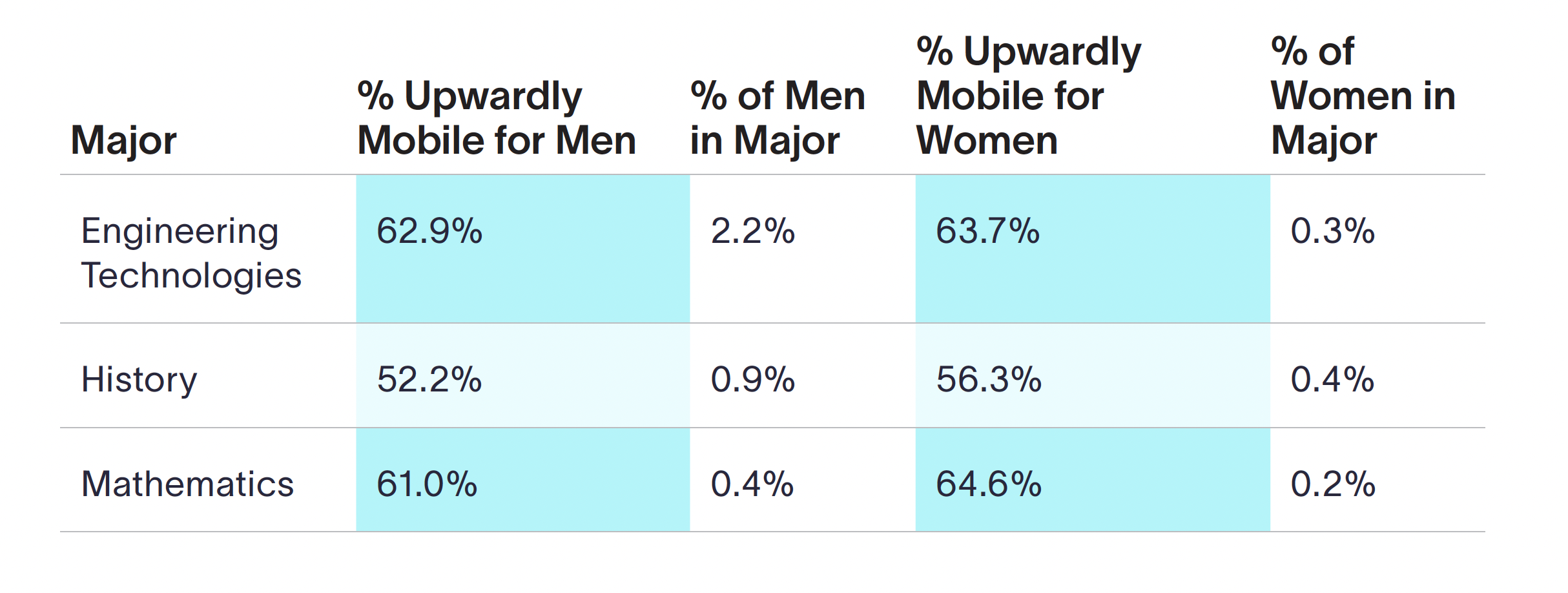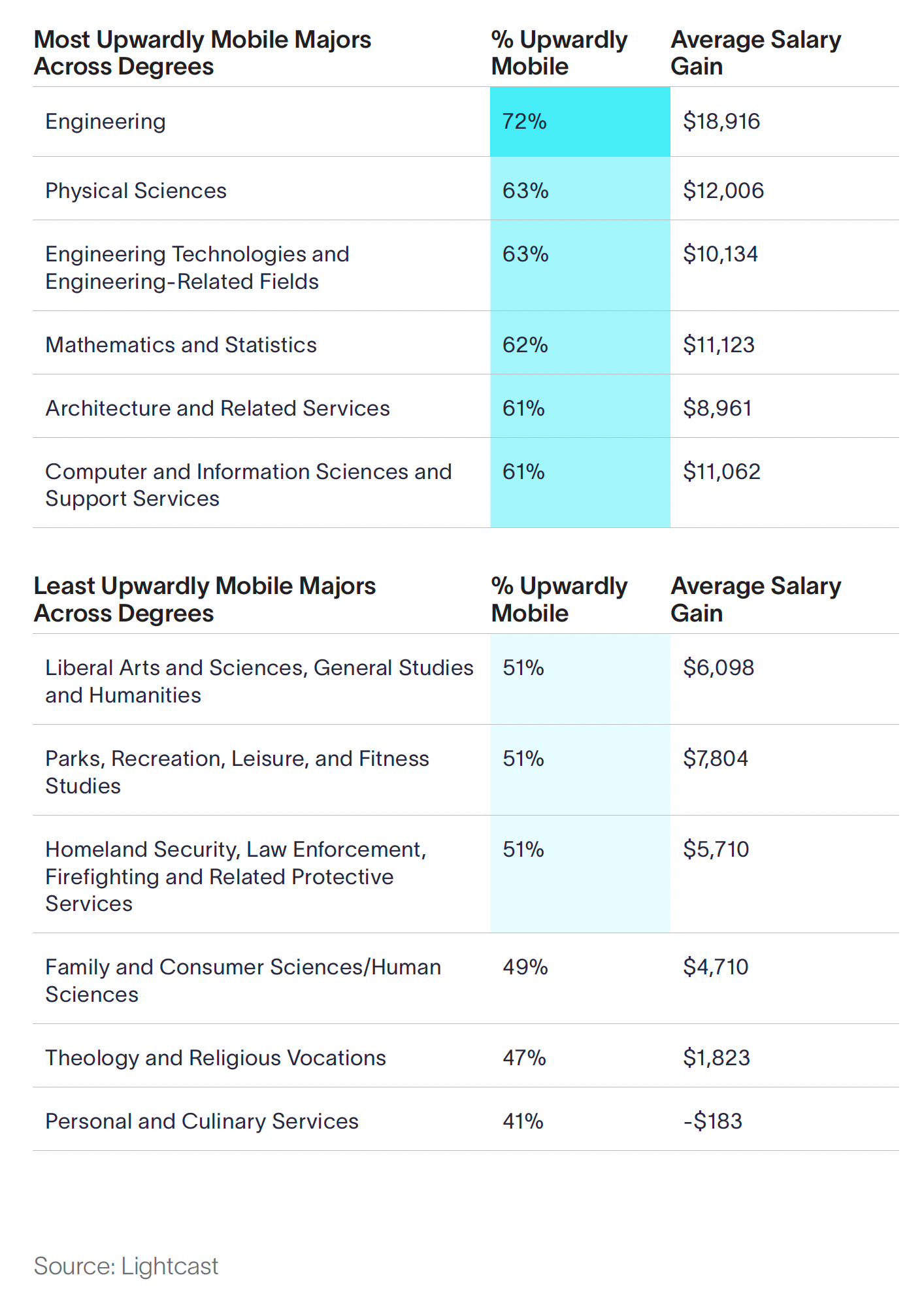Industry Insights
Valuable insights from UPCEA's trusted corporate partners.
Making the Case: Marketing to Adult Learners with Data
With enrollments declining and as a tight labor market reaches record-low unemployment,, marketers and recruiters in higher education now face the difficult task of finding new students in a uniquely challenging time for colleges and universities.
One potential source of those new students? Adult learners.
Moving Up and Moving Forward, a new research report from Lightcast, uses analysis of over 125 million social profile records to understand who adult learners are, what they study, and how their careers change after returning to school. After defining a measure of upward economic mobility that includes an increase in salary over their last job, we found that adult learners are 22% more likely to achieve upward mobility than their peers who don’t return to school, and they also see a 140% larger increase in average annual salary than those who do not go back to school.
When recruiting potential adult learners, the numbers point toward it being a reliable investment, advantageous to both students and their institutions.
So how can data help?
1. Recognize who to look for
In mapping out a recruitment strategy, there’s no need to take a shot in the dark about which potential students to look for. Data in the Moving Forward report show how workers from certain industries or occupation families fare after becoming adult learners. Here are the industries and occupation groups that see the greatest gain.

When looking for potential students, recruiters need to know what kinds of workers are most likely to want to pursue further education, and also those that are most likely to be successful in doing so. This industry and occupation data can serve as a first step.
At times, the demographic groups with the most to gain from returning to school are among the least likely to do so. For example, women are more likely to achieve upward mobility than men in majors related to history, engineering, and mathematics, but not very many women choose those majors—they’re chosen by 0.4%, 0.3%, and 0.2% of female adult learners, respectively.

Likewise, Hispanic students are more likely than others to achieve mobility after pursuing majors in computer science or in healthcare.

So while adult learners as a whole are more likely to achieve upward mobility than their peers, these groups in these majors are especially likely to do so—it’s to their advantage to return to school. As they seek to find and enroll more adult learners, schools can point to these statistics to show how their programs can be used to create prosperity for a more diverse group of adult learners.
2. Know where to send them
Adult learners that pursue engineering degrees are the most likely to be upwardly mobile, according to our data, with an average salary gain of $18,916 annually. Many of the other top performing majors are in similar fields, like physical sciences and computer and information sciences. If a potential student is looking at an educational program through the lens of their financial return on their investment, then those majors should be their first consideration. But not every student will be up for difficult majors in engineering—which may be why only 5.1% of all adult learners choose to pursue them.
There are two conclusions to draw from this. First, those hoping to boost enrollment in engineering programs should keep an eye out for potential adult learners already working in adjacent technical fields, whose background would provide an advantage during their studies. By seeking out students likely to succeed, higher education institutions can increase the number of upwardly-mobile individuals they produce, to the benefit of both the schools and their communities.
Second, institutions can use data to help guide every kind of student toward programs and degrees that align with both their background, their career goals, and their likelihood of achieving upward mobility.

And while many of those those pursuing majors on the lower end of the scale, like law enforcement and theological training, aren’t motivated by potential economic prosperity, having access to this historic data can help every potential student make an informed choice about what they choose to pursue.
3. Understand what you’re offering
Among all these differences and variances in demographics, background, and major, one thing remains consistent: returning to school is a reliable and profitable investment for adult learners. Across the board, their average salary growth is 140% greater than salary increases for those who don’t go back to school, with an average annual boost of over $15,000. And as we’ve seen, those numbers can be even higher for students in certain majors or coming from certain backgrounds.
Since the pool of potential students is so large, educational institutions hoping to increase their enrollment can’t afford to ignore adult learners. But returning to school has enormous potential for adult learners themselves, and the data show that doing so is a sound investment. With that background in mind, all that remains for marketers and recruiters to do is make the case by connecting the dots.
The Moving Up and Moving Forward: Advancing Mobility for Adult Learners report is available for free download below:
About Lightcast
Formerly Emsi Burning Glass, Lightcast finds purpose in sharing the insights that build communities, educators and companies, and we take pride in knowing our work helps others find fulfillment, too.
We bring clarity to the labor market, guiding our customers through a complex and changing world and giving them the competitive advantage they demand. Our expertise provides the lens to connect the right people with the right roles (and training) in the right places.
We believe data isn’t just numbers — each data point represents real people and real opportunities for growth. Our solutions not only progress companies, educators, and communities but also individuals in their careers.
